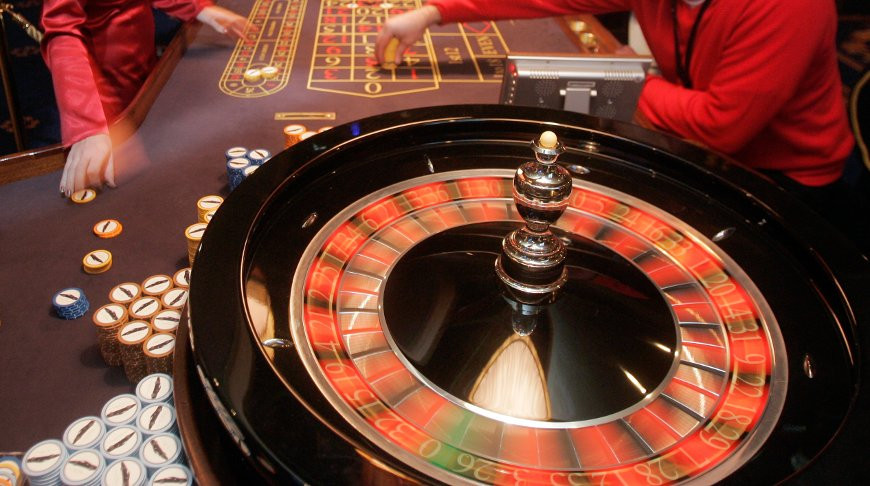When you click to go to Zetcasino7.gr, you enter a thrilling world filled with possibilities, excitement, and sometimes disappointment. Despite understanding odds and strategies, players often find themselves placing bets that defy logical reasoning. Why does this happen? The ongoing battle between emotions and logic within your mind significantly influences gambling decisions, often leading to costly mistakes. In this article, we’ll explore the psychological reasons behind these poor decisions, helping you gain deeper insights into your gambling habits.
Understanding the Battle: Emotions vs. Logic
Every gambling decision involves a continuous tug-of-war between your emotional impulses and logical thinking.
Emotional Decision-Making in Gambling
Emotional decisions in gambling are driven by excitement, fear, hope, and greed. These powerful feelings significantly influence betting choices, overriding rational thought processes, and often leading to impulsive or risky wagers.
Logical Decision-Making in Gambling
Logical decisions involve analyzing odds, statistics, and probabilities. Rational betting considers risk assessment and strategic planning, ensuring gambling remains sustainable and controlled. However, logic often struggles to prevail against powerful emotional impulses.
Common Emotional Pitfalls in Online Casinos
Recognizing common emotional pitfalls can help you understand why you frequently place wrong bets.
Overconfidence and Optimism Bias
Overconfidence is a common emotional pitfall, making you overly optimistic about your gambling skills or luck. This bias can lead to placing excessively risky bets, assuming positive outcomes despite clear odds against success.
Fear of Missing Out (FOMO)
FOMO prompts impulsive decisions driven by the fear of missing potential big wins or exciting opportunities. Casinos exploit FOMO through limited-time promotions and bonuses, prompting hurried, emotional decisions without careful thought.
Frustration and Revenge Betting
After experiencing losses, frustration often leads to “revenge betting”—attempting to recover losses quickly through impulsive, higher-risk bets. This emotional reaction rarely leads to positive outcomes, typically compounding initial losses significantly.
How Casinos Influence Emotional Decisions
Online casinos intentionally foster emotional decision-making through specific psychological strategies.
Immersive and Engaging Environments
Casinos use immersive visuals, captivating sounds, and engaging gameplay to heighten emotional responses, diminishing your logical reasoning capabilities. These sensory elements significantly increase the likelihood of emotional, rather than logical, betting.
Rewards and Bonuses
Frequent rewards, bonuses, and promotions trigger emotional excitement and anticipation. Such incentives encourage spontaneous betting decisions, often pushing logical considerations aside in pursuit of immediate gratification.
Near-Miss Phenomenon
Casinos intentionally engineer near-misses—situations that closely resemble wins but narrowly fail—to create emotional tension. These experiences powerfully motivate continued betting, driven by the emotional desire for immediate redemption or success.
Cognitive Biases Influencing Betting Mistakes
Cognitive biases significantly shape emotional gambling decisions, frequently leading to mistakes.
Gambler’s Fallacy
The gambler’s fallacy involves mistakenly believing past outcomes influence future results. Players frequently make bets assuming they’re “due” a win after consecutive losses, ignoring logical probability in favor of emotional hope.
Anchoring Effect
Anchoring bias occurs when initial information disproportionately influences subsequent decisions. Casinos leverage this by presenting initial betting options or wins as anchors, distorting your perception of acceptable risk levels and betting amounts.
Neurological Reasons Behind Emotional Betting
Neurological factors strongly underpin the emotional drive to gamble, contributing to betting mistakes.
Dopamine and Gambling
Gambling triggers dopamine release—a neurotransmitter associated with pleasure and reward. Elevated dopamine levels enhance emotional excitement, overpowering logical reasoning and increasing the likelihood of impulsive decisions.
Brain Activity and Risk
Neuroimaging studies reveal gambling activates brain regions associated with emotional processing and reward anticipation, often suppressing logical analysis areas. This neurological response significantly enhances emotional decision-making during gambling.
Strategies to Strengthen Logical Decision-Making
Employing effective strategies can help reinforce logical thinking, reducing emotional betting mistakes.
Mindful Gambling
Practicing mindfulness involves remaining actively aware of your emotional states and decision-making processes during gambling sessions. Mindfulness techniques significantly enhance logical reasoning, reducing impulsive, emotionally driven bets.
Pre-Set Betting Limits
Setting strict betting limits before starting gambling sessions encourages rational, controlled wagering. Predetermined limits prevent emotional impulses from overriding logical decision-making processes, ensuring sustainable gambling habits.
Taking Regular Breaks
Regularly pausing gambling sessions allows emotional excitement to subside, enabling rational thinking and clearer decision-making. Breaks provide essential opportunities for logical reflection, significantly reducing impulsive emotional bets.
Financial Management as a Logical Anchor
Sound financial management provides a practical foundation for logical gambling decisions.
Budgeting
Clearly established gambling budgets offer concrete guidelines, helping resist emotional urges to exceed financial limits. Logical budgeting significantly curtails impulsive spending, promoting responsible gambling behaviors.
Record-Keeping
Maintaining detailed records of gambling activities fosters logical awareness of betting behaviors, clearly highlighting emotional mistakes and helping implement corrective strategies.
Emotional Awareness Techniques
Increasing emotional awareness significantly improves logical decision-making in gambling.
Emotional Regulation
Practicing emotional regulation techniques like deep breathing, meditation, or short mental resets during gambling sessions helps manage emotional excitement effectively, facilitating logical reasoning and sound decision-making.
Recognizing Emotional Triggers
Identifying emotional triggers such as stress, excitement, or frustration allows proactive management. Understanding these triggers reduces susceptibility to emotional betting, enabling more logical wagering decisions.
Importance of Casino Resources for Responsible Betting
Utilizing casino-provided resources helps manage emotional betting effectively.
Self-Exclusion and Limits
Online casinos provide self-exclusion and betting limit tools. Leveraging these resources enhances logical control, reducing risks of emotionally driven, harmful gambling behaviors.
Educational Resources
Accessing casino-provided educational resources enhances understanding of emotional pitfalls, cognitive biases, and logical gambling strategies, empowering informed, responsible betting decisions.
Professional Support for Emotional Gambling
Recognizing when professional support is necessary significantly contributes to maintaining logical betting behaviors.
Counseling and Therapy
Professional counseling provides targeted strategies for managing emotional gambling impulses. Therapists specializing in gambling addiction offer essential support, reinforcing logical decision-making processes.
Support Groups
Joining gambling support groups provides emotional encouragement and practical advice, helping reinforce logical gambling strategies and reduce emotional decision-making risks.
Conclusion: Balancing Emotions and Logic in Gambling
The complex battle between emotions and logic significantly influences betting decisions. Understanding how casinos leverage emotional manipulation, recognizing cognitive biases, and employing practical strategies enhances logical control, significantly reducing costly gambling mistakes.
Through mindful gambling, effective financial management, emotional awareness, and leveraging available casino resources, players can achieve a healthy balance between emotional excitement and logical reasoning. Ultimately, recognizing and managing emotional impulses ensures gambling remains an enjoyable, sustainable, and controlled activity.



